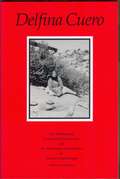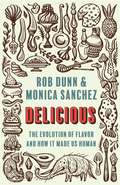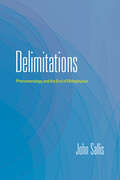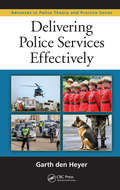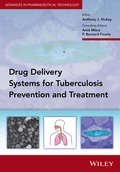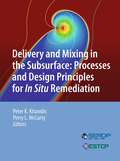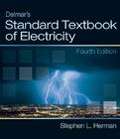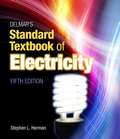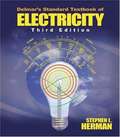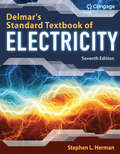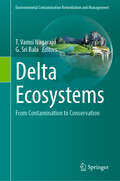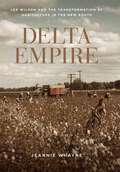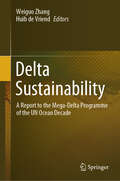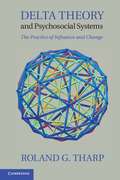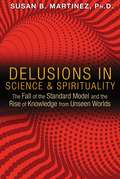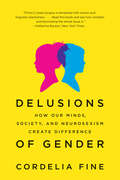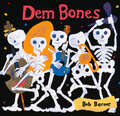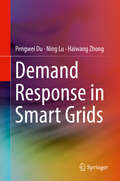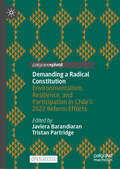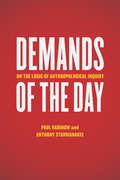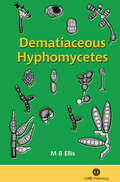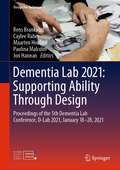- Table View
- List View
Delfina Cuero: Her Autobiography, An Account Of Her Last Years And Her Ethnobotanic Contributions (Anthropological Papers #38)
by Florence C. Shipek Sylvia B. VaneDelfina Cuero: Her Autobiography, an Account of Her Last Years, and Her Ethnobotanic Contributions
Delicious: The Evolution of Flavor and How It Made Us Human
by Rob Dunn Monica SanchezA savory account of how the pursuit of delicious foods shaped human evolutionNature, it has been said, invites us to eat by appetite and rewards by flavor. But what exactly are flavors? Why are some so pleasing while others are not? Delicious is a supremely entertaining foray into the heart of such questions.With generous helpings of warmth and wit, Rob Dunn and Monica Sanchez offer bold new perspectives on why food is enjoyable and how the pursuit of delicious flavors has guided the course of human history. They consider the role that flavor may have played in the invention of the first tools, the extinction of giant mammals, the evolution of the world’s most delicious and fatty fruits, the creation of beer, and our own sociality. Along the way, you will learn about the taste receptors you didn't even know you had, the best way to ferment a mastodon, the relationship between Paleolithic art and cheese, and much more.Blending irresistible storytelling with the latest science, Delicious is a deep history of flavor that will transform the way you think about human evolution and the gustatory pleasures of the foods we eat.
Delimitations: Phenomenology and the End of Metaphysics (The Collected Writings of John Sallis)
by John SallisSince Hegel, philosophers have declared repeatedly that metaphysics is at an end, a pronouncement that has sparked much contemporary philosophical debate. What exactly does the end, or closure, of metaphysics mean, and what are the implications of this view?John Sallis characterizes the end of metaphysics as a limit, or horizon, both enclosing metaphysical thought and opening the field of thinking beyond it. He elaborates five areas in which the boundaries of thinking are extended: imagination as an opening power, the radicalizing of phenomenology's injunction to attend to the things themselves, Heidegger's shift of thinking toward an opening or clearing, archaic closure through a return to Plato and Heraclitus, and the nonidentity that takes place in the act of delimitation. This last question is developed in relation to Husserl's project of a pure phenomenology, to the debate between hermeneutics and deconstruction, and to the secluding of ground announced in Schelling's thought.
Delineating Organs at Risk in Radiation Therapy
by Domenico Genovesi Carlos A. Perez Giampiero Ausili CèfaroDefining organs at risk is a crucial task for radiation oncologists when aiming to optimize the benefit of radiation therapy, with delivery of the maximum dose to the tumor volume while sparing healthy tissues. This book will prove an invaluable guide to the delineation of organs at risk of toxicity in patients undergoing radiotherapy. The first and second sections address the anatomy of organs at risk, discuss the pathophysiology of radiation-induced damage, and present dose constraints and methods for target volume delineation. The third section is devoted to the radiological anatomy of organs at risk as seen on typical radiotherapy planning CT scans, with a view to assisting the radiation oncologist to recognize and delineate these organs for each anatomical region – head and neck, mediastinum, abdomen, and pelvis. The book is intended both for young radiation oncologists still in training and for their senior colleagues wishing to reduce intra-institutional variations in practice and thereby to standardize the definition of clinical target volumes.
Delivering Functionality in Foods: From Structure Design to Product Engineering (Food Engineering Series)
by António Vicente Cristina Silva Chelo GonzalezThis singular text aims to strengthen the scientific understanding of food product design and engineering, and to stimulate and accelerate the development of innovative, complex and highly structured products and suitable production processes. By gathering an interdisciplinary team of scientists from the research areas of food engineering, biophysics, applied soft matter, food technology and applied human nutrition, this book contributes to an integrated process and product design approach for creating innovative, multi-phase structured foods delivering functionality.Delivering functionality in foods: from structure design to product engineering serves as an important reference for food engineers, food technologists and nutritionists, covering all aspects of the design of food structures and their application in the development of functional food products. From the delivery of health-related functionalities to process and product engineering for delivery of multiple food properties, this work provides a comprehensive overview of the knowledge, processes and technologies required for the design of functional foods.
Delivering Police Services Effectively (Advances in Police Theory and Practice #27)
by Garth den HeyerThis book addresses the various strategies that are available to police management, such as consolidation, regionalization, and amalgamation of police agencies; new public management (NPM); enhanced performance management; civilianization; and organizational restructuring. It fills the gap in the research as to how police agencies have reacted to the environmental and fiscal changes since the 1980s. The book examines the strategies employed and the effect on police and their delivery of service.
Delivery Systems for Tuberculosis Prevention and Treatment
by Anthony J. Hickey P. Bernard Fourie Amit MisraProvides a review of novel pharmaceutical approaches for Tuberculosis drugs Presents a novel perspective on tuberculosis prevention and treatment Considers the nature of disease, immunological responses, vaccine and drug delivery, disposition and response Multidisciplinary appeal, with contributions from microbiology, immunology, molecular biology, pharmaceutics, pharmacokinetics, chemical and mechanical engineering
Delivery and Mixing in the Subsurface
by Peter K. Kitanidis Perry L. MccartyThis volume is meant to provide the practitioner with information on the natural mixing processes occurring in aquifers as well as to describe basic strategies that can be implemented to enhance mixing in particular cases. For example, when it comes to mixing miscible liquids, one can speed up mixing in the formation by manipulating the flow such as through the use of recirculation wells. Furthermore, much of the mixing can be achieved partially within recirculation wells themselves, where contaminated water is admixed with additives, volatile products may be removed through a vapor mass exchanger, etc. Thus, adding mixing wells can significantly increase the performance of the delivery and mixing system and speed up the process of remediation.
Delmar's Standard Textbook of Electricity
by Stephen L. HermanUnderstanding the theory and application of electrical concepts is necessary for a successful career in the electrical field specifically in industrial maintenance and installation, and this newly revised, full color text delivers! Delmar's Standard Textbook of Electricity, Fourth Edition trains aspiring electricians by blending concepts relating to electrical theory with practical 'how to' information that prepares readers for situations commonly encountered on the job. This revision retains all the hallmarks of our market-leading prior editions, but displays enhancements such as more practical application problems. Topics span the major aspects of the electrical field including direct and alternating current circuits, basic theory, transformers, generators, and motors. This new edition has been organized so that all relevant information is located within a given chapter which allows for flexibility to access and cover topics in any order making this text an indispensable resource.
Delmar's Standard Textbook of Electricity
by Stephen L. HermanMastering the theory and application of electrical concepts is necessary for a successful career in the electrical installation or industrial maintenance fields, and this new fifth edition of DELMAR'S STANDARD TEXTBOOK OF ELECTRICITY delivers! Designed to teach by blending concepts relating to electrical theory and principles with practical 'how to' information that prepares you for situations commonly encountered on the job. Topics span all the major aspects of the electrical field including atomic structure and basic electricity, direct and alternating current, basic circuit theory, three-phase circuits, single phase, transformers, generators, and motors. This revision retains all the hallmarks of our market-leading prior editions and includes enhancements such as updates to the 2011 NECr, a new chapter on industry orientation, and new coverage of constant-current transformers and fuel cells as well as reference tips on going green throughout the text.
Delmar's Standard Textbook of Electricity (3rd Edition)
by Stephen L. HermanMastering the theory and application of electrical concepts is necessary for a successful career in the electrical installation or industrial maintenance fields, and this newly revised, full color text delivers! Delmar's Standard Textbook of Electricity, 3E trains aspiring electricians by blending concepts relating to electrical theory with practical 'how to' information that prepares students for situations commonly encountered on the job. Topics span the major aspects of the electrical field including atomic structure and basic electricity, direct and alternating current, basic circuit theory, three-phase circuits, single phase, transformers, generators, and motors. This revision retains all the hallmarks of our market-leading second edition, but displays enhancements such as new up-to-date photos, bonus learning features to advance student retention, and a new e. resource for instructors that takes the guesswork out of classroom preparation.
Delmar’s Standard Textbook of Electricity
by Stephen L. HermanCombine comprehensive coverage of basic electrical theory with practical "how to" information to prepare students for real practice with DELMAR'S STANDARD TEXTBOOK OF ELECTRICITY, 7E by Stephen Herman. This edition covers all aspects of basic theory with no assumption of prior electrical knowledge. The author also limits math to basic algebra and trigonometry with step-by-step examples. Quality schematics and illustrations guide students through basic electrical circuits; DC and AC theory; and equipment such as meters, transformers and motors. Numerous examples demonstrate how to complete common tasks electricians perform, while succinct units cover only one or two topics each to ensure clarity. In addition, new coverage of spike and surge protection and motor installation complies with the 2017 NEC. MindTap online resources are also available with interactive multimedia and options to customize and track and report progress.
Delta Ecosystems: From Contamination to Conservation (Environmental Contamination Remediation and Management)
by T. Vamsi Nagaraju G. Sri BalaThis comprehensive volume delves into the intricacies of delta ecosystems, focusing on the transition from contamination to conservation. It addresses the critical challenges faced by these unique environments and introduces innovative solutions essential for sustainable restoration practices. Central to the discussion is the strategic improvement of restoration infrastructure and methods, aimed at reducing environmental impact while enhancing ecological health. The book emphasizes an interdisciplinary approach, demonstrating how collaboration among civil engineers, environmental scientists, and conservation experts can lead to the development of more effective restoration projects. Globally, over 600 million people reside in delta regions. Human activities in these areas, including their supplying canals, rivers, and estuaries, exert significant pressure on the natural resources and habitat equilibrium of deltas, leading to resource degradation and threatening the livelihoods and lives of inhabitants. This book advocates for a sustainable future for delta's worldwide and the communities that depend on them. A significant part of the book is dedicated to exploring sustainable solutions and best practices in water management, such as optimizing water use efficiency, ensuring water quality, and implementing innovative techniques to reduce water consumption and prevent pollution. It also examines the potential for integrating new materials and technologies into restoration efforts, including bio filtration systems and renewable energy sources. By applying circular economy principles to waste management in restoration projects, the book underscores a commitment to comprehensive sustainability. The findings support the Sustainable Development Goals (SDGs) and Agenda 2030, providing guidance to countries with delta regions to preserve their natural resources for future generations.
Delta Empire: Lee Wilson and the Transformation of Agriculture in the New South (Making the Modern South)
by Jeannie WhayneIn Delta Empire: Lee Wilson and the Transformation of Agriculture in the New South Jeannie Whayne employs the fascinating history of a powerful plantation owner in the Arkansas delta to recount the evolution of southern agriculture from the late nineteenth century through World War II. After his father's death in 1870, Robert E. "Lee" Wilson inherited 400 acres of land in Mississippi County, Arkansas. Over his lifetime, he transformed that inheritance into a 50,000-acre lumber operation and cotton plantation. Early on, Wilson saw an opportunity in the swampy local terrain, which sold for as little as fifty cents an acre, to satisfy an expanding national market for Arkansas forest reserves. He also led the fundamental transformation of the landscape, involving the drainage of tens of thousands of acres of land, in order to create the vast agricultural empire he envisioned. A consummate manager, Wilson employed the tenancy and sharecropping system to his advantage while earning a reputation for fair treatment of laborers, a reputation -- Whayne suggests -- not entirely deserved. He cultivated a cadre of relatives and employees from whom he expected absolute devotion. Leveraging every asset during his life and often deeply in debt, Wilson saved his company from bankruptcy several times, leaving it to the next generation to successfully steer the business through the challenges of the 1930s and World War II. Delta Empire traces the transition from the labor-intensive sharecropping and tenancy system to the capital-intensive neo-plantations of the post--World War II era to the portfolio plantation model. Through Wilson's story Whayne provides a compelling case study of strategic innovation and the changing economy of the South in the late nineteenth century.
Delta Sustainability: A Report to the Mega-Delta Programme of the UN Ocean Decade
by Huib De Vriend Weiguo ZhangThis book examines sustainability issues of 15 deltas in the world. Each delta is described in five sections: physical setting, socioeconomic characteristics, current issues, management measures and perspective for future pathways to greater sustainability. These deltas, diverse in their geographical and economic conditions, are all confronted with natural hazards and pollution issues, posing threats to ecological health, human security and economic development. The book offers an overview of delta challenges in an integrated natural and social science approach. It is intended for researchers, graduate students and the public, especially those dwelling in deltas. It aims to improve knowledge of the current situation and to enhance awareness of the urgency of collective action to prepare for the uncertain future of these deltas. Possible future pathways towards delta sustainability are also addressed in the book.
Delta Theory and Psychosocial Systems: The Practice of Influence and Change
by Roland G. TharpDelta Theory establishes the foundation for a true scientific applied psychology, a theory of how human influence induces change in others. Delta Theory is unified and universal, applying to all cultures, historical periods and goals for change. It integrates concepts and research from psychology, sociology, anthropology, evolution theory, philosophy, psychoneurology, cognitive science and cultural-historical-activity theory. Yet Delta Theory is clear, economical and elegant, with a full exposition of tactics for its practices. Rich examples are drawn from professional practices, but also from the creation and operations of criminals, healing ceremonies of indigenous peoples, and cross-species comparisons. This book ultimately seeks to describe how influence works, how it could be improved and how it can be resisted.
Delusions in Science and Spirituality: The Fall of the Standard Model and the Rise of Knowledge from Unseen Worlds
by Susan B. MartinezDebunks cherished theories of mainstream consensus and reveals the deeper mysteries of the science of the unseen • Reveals a new “Theory of Everything” to replace the standard model and complete our knowledge of Earth Science, anthropology, psychology, and spirituality • Explains the failings of the Big Bang, evolution, ice age theory, and global warming • Shows how the Freudian and Jungian theories of the unconscious have grossly misrepresented the spirit of man and the psyche of humanity What if science and society’s most darling theories, taught as fact, were 100% wrong? What if the anomalies that disprove these theories were covered up and distorted and any serious challenges brushed off as lunacy, hysteria, junk science, and dissension? In this primer in deprogramming, Susan B. Martinez reveals the disinformation at the root of mainstream consensus thinking. She punches gaping holes in the cherished theories of the Big Bang, Darwinian evolution, ice ages, and global warming. Drawing on the ancient science of the unseen and revelations from the Oahspe Bible as well as some of the most advanced thinkers in astrophysics, she explains a new “Theory of Everything” to replace the standard model. She explores the concept of vortexya, the cosmic whirlwind of our own geomagnetic field, which explains quite simply the subtle changes that take place on Earth and in the universe over time without the “magical thinking” of the Big Bang, global warming, or ice ages. Martinez reveals how the instability of society itself has found its way into our theories, positing explosive change and acceleration where there is none. She explains how homo sapiens’ evolution did not suddenly accelerate 40,000 years ago and culture did not accelerate to birth civilization a mere 6,000 years ago. She shows how the theories of the Freudian and Jungian unconscious and of reincarnation have grossly misrepresented the spirit of man and the psyche of humanity. Resurrecting the majestic order that was once recognized at the basis of reality, Martinez shows that the shift from the Age of Disinformation to the Age of Understanding is well underway.
Delusions of Gender: How Our Minds, Society, and Neurosexism Create Difference
by Cordelia Fine"[Fine's] sharp tongue is tempered with humor. . . . Read this book and see how complex and fascinating the whole issue is."--The New York Times <P><P> It's the twenty-first century, and although we tried to rear unisex children--boys who play with dolls and girls who like trucks--we failed. Even though the glass ceiling is cracked, most women stay comfortably beneath it. And everywhere we hear about vitally important "hardwired" differences between male and female brains. The neuroscience that we read about in magazines, newspaper articles, books, and sometimes even scientific journals increasingly tells a tale of two brains, and the result is more often than not a validation of the status quo. Women, it seems, are just too intuitive for math; men too focused for housework. <P><P> Drawing on the latest research in neuroscience and psychology, Cordelia Fine debunks the myth of hardwired differences between men's and women's brains, unraveling the evidence behind such claims as men's brains aren't wired for empathy and women's brains aren't made to fix cars. She then goes one step further, offering a very different explanation of the dissimilarities between men's and women's behavior. Instead of a "male brain" and a "female brain," Fine gives us a glimpse of plastic, mutable minds that are continuously influenced by cultural assumptions about gender. <P><P> Passionately argued and unfailingly astute, Delusions of Gender provides us with a much-needed corrective to the belief that men's and women's brains are intrinsically different--a belief that, as Fine shows with insight and humor, all too often works to the detriment of ourselves and our society.
Dem Bones
by Bob Barner&“No bones about it, this will be a real boost for those looking to inject a little humor and fun into basic facts about the human body.&” —Publishers Weekly (starred review) Shoulder bone connected to da neck boneNeck bone connected to da head bone . . . Colorful torn paper collages bring to life this familiar African American spiritual as frolicking, instrument-playing skeletons—accompanied by interesting, informative &“bone facts&”—entertain and educate young readers. At Halloween or all year round, at home or in the classroom, Dem Bones is a &“clever anatomy lesson . . . geared for tickling the funny bones of the early elementary set&” (Publishers Weekly). &“A snappy introduction to the human skeleton . . . The artwork makes this an inviting picture book to read aloud in primary-grade classrooms.&” —Booklist &“A book that entertains and educates this age group and gets them tapping their toe bones, too. Bravo.&” —Family Life
Demand Response in Smart Grids
by Ning Lu Pengwei Du Haiwang ZhongThis book is the first of its kind to comprehensively describe the principles of demand response. This allows consumers to play a significant role in the operation of the electric grid by reducing or shifting their electricity usage in response to the grid reliability need, time-based rates or other forms of financial incentives. The main contents of the book include modeling of demand response resources, incentive design, scheduling and dispatch algorithms, and impacts on grid operation and planning. Through case studies and illustrative examples, the authors highlight and compare the advantages, disadvantages and benefits that demand response can have on grid operations and electricity market efficiency.First book of its kind to introduce the principles of demand response;Combines theory with real-world applications useful for both professionals and academic researchers;Covers demand response in the context of power system applications.
Demanding Energy: Space, Time and Change
by Gordon Walker Allison Hui Rosie DayThis edited collection critically engages with an important but rarely-asked question: what is energy for? This starting point foregrounds the diverse social processes implicated in the making of energy demand and how these change over time to shape the past patterns, present dynamics and future trajectories of energy use. Through a series of innovative case studies, the book explores how energy demand is embedded in shared practices and activities within society, such as going to music festivals, cooking food, travelling for business or leisure and working in hospitals. Demanding Energy investigates the dynamics of energy demand in organisations and everyday life, and demonstrates how an understanding of spatiality and temporality is crucial for grasping the relationship between energy demand and everyday practices. This collection will be of interest to researchers and students in the fields of energy, climate change, transport, sustainability and sociologies and geographies of consumption and environment. Chapters 1 and 15 of this book are available open access under a CC BY 4.0 license at link.springer.com
Demanding a Radical Constitution: Environmentalism, Resilience, and Participation in Chile’s 2022 Reform Efforts
by Javiera Barandiaran Tristan PartridgeThis open access book documents the critical thinking and political actions that generated one of the world’s most progressive national constitutions, presented to the Chilean public in 2022. Although that text was ultimately rejected in a national referendum, it drew on decades of diverse environmental, political, Indigenous, and community organizing and contained concepts and goals at the forefront of global efforts to create more just and equitable political systems, healthier living environments, and more resilient ecosystems. Drawing on research by faculty and students from the USA and Chile, chapters within this book address political memory, Indigenous representation, public participation, the Rights of Nature, environmental law, mining conflicts, natural commons, knowledge systems, and rural education. This book highlights important contributions from Chile’s 2022 reform efforts for diverse global responses to the erosion of democracy, environmental degradation, and climate change.
Demands of the Day: On the Logic of Anthropological Inquiry
by Paul Rabinow Anthony StavrianakisDemands of the Day asks about the logical standards and forms that should guide ethical and experimental anthropology in the twenty-first century. Anthropologists Paul Rabinow and Anthony Stavrianakis do so by taking up Max Weber’s notion of the “demands of the day.” Just as the demand of the day for anthropology decades ago consisted of thinking about fieldwork, today, they argue, the demand is to examine what happens after, how the experiences of fieldwork are gathered, curated, narrated, and ultimately made available for an anthropological practice that moves beyond mere ethnographic description. Rabinow and Stavrianakis draw on experiences from an innovative set of anthropological experiments that investigated how and whether the human and biological sciences could be brought into a mutually enriching relationship. Conceptualizing the anthropological and philosophic ramifications of these inquiries, they offer a bold challenge to contemporary anthropology to undertake a more rigorous examination of its own practices, blind spots, and capacities, in order to meet the demands of our day.
Dematiaceous Hyphomycetes
by M EllisThis book is about many common and some less common hyphomycete fungi with dark conidia or conidiophores. It aims to make their identification easier and in particular enable students and amateur mycologists, as well as professionals, who do not have direct access to a large herbarium, to name a number of their own collections and isolates to species level. This group of fungi is important as it includes many pathogens of plants and animals, many species which cause spoilage of food and deterioration of paper, plastics, textiles etc, and others which are used in various industrial processes.
Dementia Lab 2021: Proceedings of the 5th Dementia Lab Conference, D-Lab 2021, January 18–28, 2021 (Design For Inclusion #2)
by Rens Brankaert Caylee Raber Maarten Houben Paulina Malcolm Jon HannanThis book gathers revised and selected contributions to the 5th Dementia Lab Conference, D-Lab 2021, organized online on January 18-28, 2021, from the Emily Carr University of Art + Design, Vancouver, Canada. It describes original strategies in which design or creative methods have been shown to uncover, support and enhance the abilities of people living with dementia. Papers report on new ideas and findings relating to three main themes: engagement, empowerment and identity. They cover: ethics of inclusion and solutions for shifting the culture of care to be focused on both personal independence and reconnecting with the community; new ways of designing with people living with dementia; strategies for breaking negative stereotypes and preconceived opinions; and approaches to retaining personhood and dignity. Offering a timely source of information on new design and creative methods to a broad community of industrial, communication, interactive and inclusive designers, this book is also meant to address and inspire various stakeholders and organizations in dementia care.
